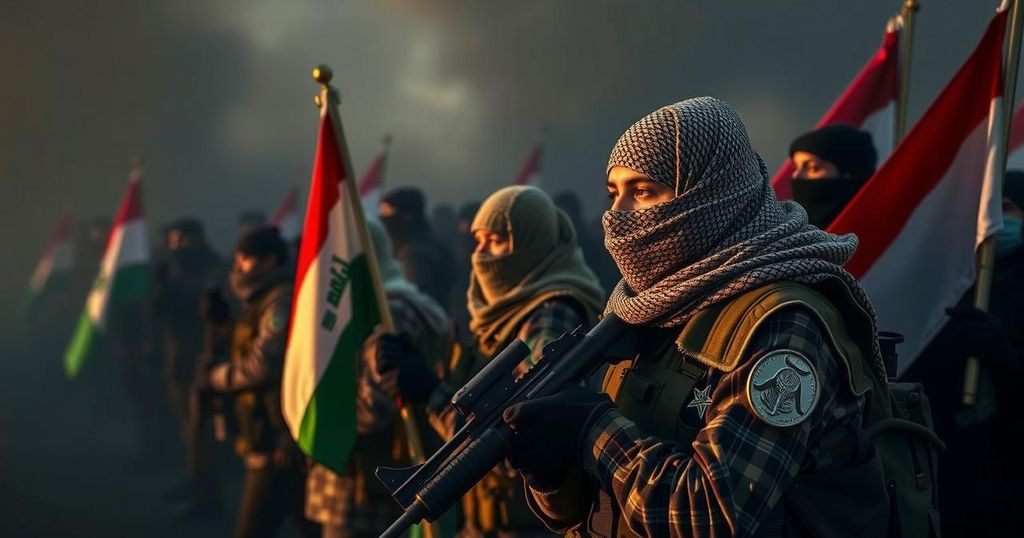The article explores the rising threat posed by Iraq’s pro-Iranian militias, which have gained independence and may jeopardize Tehran’s diplomatic goals. Israeli Foreign Minister Gideon Sa’ar’s recent threat to Iraq signifies the complexity of the evolving power dynamics, where these militias could unsettle regional stability and challenge Iranian interests.
The increasing independence of pro-Iranian militias in Iraq is prompting concern regarding their implications for both regional stability and Iran’s foreign relations. Amidst escalating tensions, Israeli Foreign Minister Gideon Sa’ar recently sent a provocative letter to the UN Security Council, warning the Iraqi leadership of Israel’s right to defend itself against threats emanating from Iraqi territory. This situation reflects the growing power of these militias, which, while aligning with Iranian interests, are concurrently undermining Tehran’s initiatives to foster better relations with Western nations.
The assertion of autonomy by these armed groups poses a dual challenge: it not only complicates the geopolitical landscape but also threatens Iran’s broader strategic objectives in the region. As the militias expand their influence, they may inadvertently engender friction with Iran, a scenario previously deemed improbable given Iran’s nurturing of these factions. Israel’s recent actions underscore the urgency for Iraq’s government to exercise more control over such militia groups.
The rise of Shi’ite militias in Iraq, often supported by Iran, has garnered attention for their significant role in the country’s socio-political dynamics. Established as part of the fight against ISIS, these groups have evolved into powerful entities that operate independently of state control. Iran’s backing has historically been viewed as a means to bolster Shi’ite power in the region; however, this has resulted in unintended consequences, such as the potential for these militias to challenge Iranian influence. Their growing autonomy poses a distinct danger not only to Iraqi sovereignty but also to Iran’s aspirations for regional stability and improved international relations, particularly with Western powers.
In conclusion, the emergence of Iraq’s Shi’ite militias as increasingly autonomous forces presents a complex challenge for both Iraqi governance and Iranian foreign policy. As these groups deepen their influence and operate without restraint, they threaten to disrupt Iran’s efforts to cultivate favorable relations with the West. Israel’s recent warning to Iraq highlights the urgency of addressing the concerns these militias pose, not only for Iraq but also for Iran, suggesting a precarious balance that may redefine alliances in the region.
Original Source: www.haaretz.com






